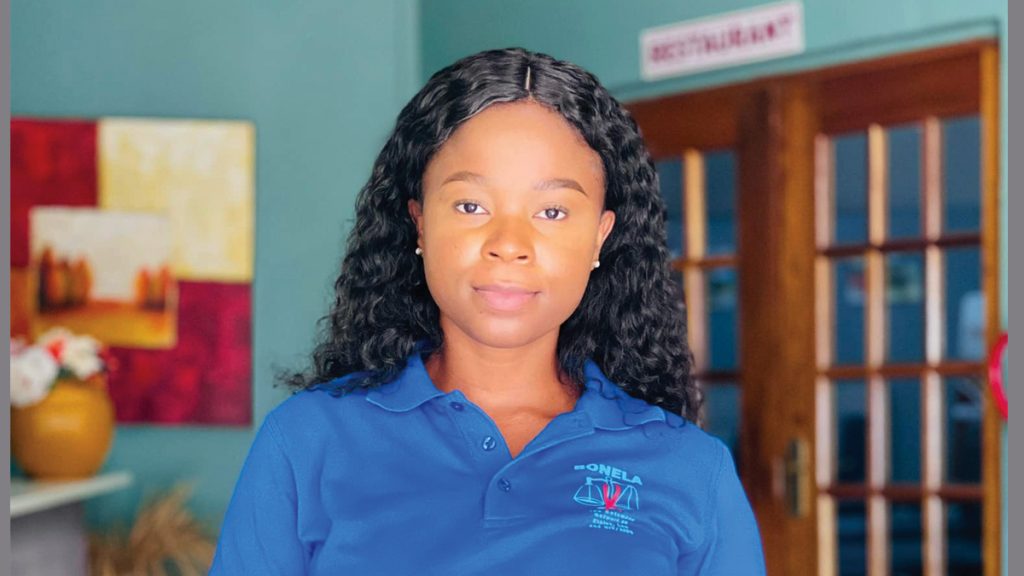CALISTUS BOSALETSWE
Botswana Network on Ethics, Law and HIV/AIDS (BONELA) has pleaded with churches to stop the inhuman and barbaric practice of claiming to ‘expel evil spirits’ from lesbians, gays, bisexuals, transgender, and queer (LGBTQ+) people.
Katlego Sechele, a Programs Coordinator at BONELA lamented that the practice of exorcism, which some pentecostal churches perform on LGBTQ+ people purportedly to “fix” their sexual orientation or gender identity, has the potential to cause great harm.
“It is important to recognize that sexual orientation and gender identity are not mental illnesses or demonic possessions, but rather natural aspects of human diversity. Any practice that assumes or implies otherwise can be damaging to the mental and emotional well-being of those affected.”
Dikuelo Mponang, a local transgender woman whose name has been changed to protect her identity, said a pastor at her aunt’s church subjected her to exorcism in 2013 when she was 20. “I was taken aback by comments during the service where the pastor was calling on congregants not to oppose the gender allocated to them when they came into the world, which he called ‘the will of God,” Dikuelo remembers.
“The pastor even went so far as saying that God has created man and woman in the image of God, and no one has the power to alter their gender identity.”
She said the whole scenario sent a chill down her spine. After the service, the pastor requested to see her and her aunt. “During the one-on-one session with the pastor, he claimed that he was ‘praying against the demonic homosexuality spirits possessing me’ and ridiculed me for wanting to change my gender identity to female,” Dikuelo said, adding that the whole experience was so traumatizing she never returned to church.
She blames her aunt who she suspects planned the exorcism session with the pastor because she couldn’t come to terms with the fact that Dikuelo’s preferred identity is female as opposed to the male gender she was assigned at birth.
“The whole experience brought back the trauma that I suffered in school where we were made to identify as either a boy or a girl. I was forced to identify myself with the gender that was assigned to me at birth, and the church wanted to continue to subject me to this traumatic experience,” she added.
Katlego Kolenyane, a transgender activist in Gaborone, said transgender people are not alone in being subjected to exorcism attempts in Botswana churches. She said the practice cuts across all gender and sexual minorities. She noted that some parents of LGBTQ+ children take them to church seeking exorcism due to social pressure and shame.
“Parents should learn to accept their children when they openly come out as opposed to feeling ashamed because they want to keep up with what society perceives to be righteous,” Kolenyane said.
Reverend Moruakgomo, a Botswana Christian Council (BCC) member advised churches to be safe havens for LGBTQ+ people who continue to experience stigma and discrimination. “We should be able to accept them and offer them counseling. Failure to do that as a church will drive them to commit suicide if the church can’t help,” he warned.
He said LGBTQ people are entitled to pastoral services like anyone who goes to church seeking the grace of the Lord, adding that the BCC has been mounting campaigns geared towards teaching church leadership about sexuality and the need to accept LGBTQ+ persons.
At BONELA, Sechele said that while it is crucial to protect the rights and dignity of the LGBTQ+ community, it is essential to approach the issue with sensitivity and respect for religious freedom.
Instead of prohibiting churches from performing exorcisms, Sechele said it may be more effective to promote education and awareness about the harm caused by such practices and encourage dialogue between religious institutions and the LGBTQ+ community.
She said churches should prioritize creating safe and inclusive spaces for all individuals, regardless of their sexual orientation or gender identity, and that this can be achieved by educating clergy and congregation members about the importance of respecting and accepting diversity, as well as offering support and resources for LGBTQ+ individuals.
“Additionally, churches should avoid perpetuating harmful stereotypes and promote understanding and acceptance within their communities,’’ she said.
She further emphasized that it is essential for religious institutions to recognize the need for inclusivity and take steps to ensure that all members feel welcomed and valued. “BONELA and several organizations are working to provide support and resources for LGBTQI+ individuals who have experienced traumatic events, including those related to religious practices. We offer linkage to counseling services, advocacy, and educational programs to help promote understanding and acceptance of diverse sexual orientations and gender identities,” she added.
Sechele said parents who discover their children may be LGBTQI+ should prioritize love, support, and acceptance.
‘’It is crucial for parents to educate themselves about sexual orientation and gender identity to better understand their children’s experiences and needs. Encouraging open communication and providing a safe and supportive environment can help alleviate the potential for harm caused by practices such as exorcism,” she stated.
